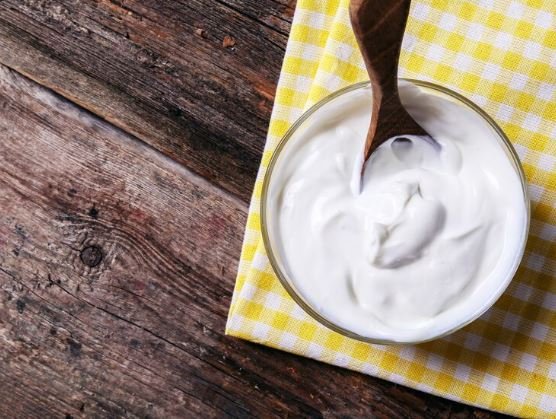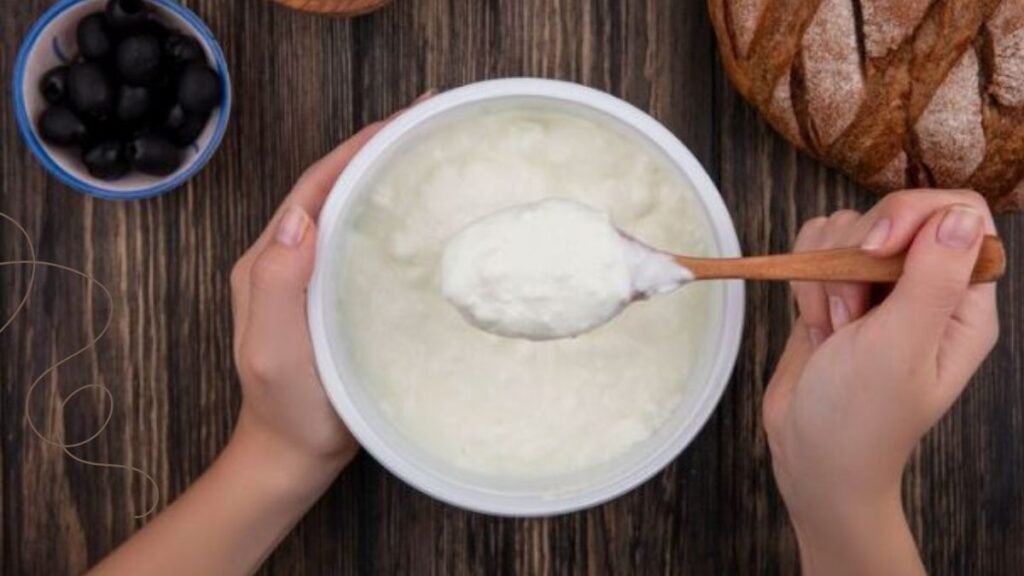How To Make Greek Yogurt
Making Greek yogurt at home is a relatively simple process requiring just a few ingredients and patience. The thick, creamy, tangy flavor is perfect for various foods and sauces.
Ingredients
- 4 cups of whole milk
- 2 tablespoons of plain yogurt
- Cheesecloth or a clean kitchen towel
- A thermometer (optional but recommended)
Instruction
Heat the Milk: Pour the milk into a saucepan and heat it over medium heat until it reaches about 180°F (82°C). Stir occasionally to prevent sticking.
Cool the Milk: Remove the saucepan from heat and let the milk cool to around 110°F (43°C).
Add the Starter: Mix the plain yogurt with a bit of the cooled milk in a bowl. Then, add this mixture back into the saucepan with the rest of the cooled milk. Stir gently to combine.
Incubate the Yogurt: Pour the milk mixture into a clean bowl or container. Cover it and keep it warm for 4-6 hours. You can use a yogurt maker, wrap the bowl in a towel, or place it in a warm spot.
Strain (Optional): If you prefer Greek yogurt, use cheesecloth or a clean kitchen towel over a bowl for 1-2 hours to thicken it.
Store: Once ready, transfer the yogurt to a container and refrigerate. It will keep for about 1-2 weeks.

Tips and Tricks
- Start with fresh, high-quality milk for the best results. Whole milk will yield a creamier yogurt, but you can also use low-fat or skim milk if preferred.
- If you prefer thicker Greek yogurt, you can strain it longer. The longer you strain it, the thicker it will become.
- Greek yogurt can be frozen for future use. Freeze it in ice cube trays for convenient portioning in smoothies or blend it with fruit to make frozen yogurt popsicles.
- Save a small amount of your homemade yogurt as a starter for your next batch. This will ensure you always have fresh live cultures for fermentation.
- Once your yogurt is ready, you can flavor it with honey, fruit, vanilla extract, or other flavorings to suit your taste preferences. You can also use it as a base for smoothies, dressings, or dips.

Benefits of Greek Yogurt
Greek yogurt contains protein, calcium, probiotics, and other essential nutrients. It can support digestive health, strengthen bones, and boost immunity. By making Greek yogurt at home, you can enjoy these health benefits without added sugars or preservatives often in commercial varieties.
Greek yogurt is a good calcium source for strong bones and teeth. It also provides other important nutrients such as vitamin D, potassium, and magnesium.
Difference between Regular Yogurt and Greek Yogurt
REGULAR YOGURT
- Creamy texture with a slightly tangy taste
- More liquidy because it is not strained
- Lower in protein as compared to Greek yogurt
GREEK YOGURT
- Thicker and creamy texture and a tangy flavor
- Higher in protein and lower in carbohydrates
- Use mostly in dips, smoothies, and also for sour cream or mayonnaise

Faqs about Greek Yogurt
Is Greek yogurt healthier than regular yogurt?
Greek yogurt tends to be higher in protein and lower in carbohydrates than regular yogurt. It also contains probiotics and essential nutrients like calcium and vitamin B12.
Can I freeze Greek yogurt?
Yes, you can freeze Greek yogurt. However, freezing may alter its texture slightly, so it’s best used in recipes where texture isn’t crucial, such as smoothies or frozen desserts.
Is Greek yogurt suitable for vegetarians and vegans?
Greek yogurt made from dairy milk is unsuitable for vegans. Still, plant-based alternatives are made from ingredients like almond milk, soy milk, or coconut milk suitable for vegetarians and vegans.
What is the difference between regular yogurt and Greek yogurt?
The main difference is the straining process. Greek yogurt is strained to remove most of its whey, resulting in a thicker, creamier texture and higher protein content than regular yogurt.

Conclusion
Greek yogurt is typically made from cow’s milk but can also be made from sheep’s or goat’s milk. It has a tangy flavor similar to regular yogurt, but due to its thicker texture, it is often richer and more indulgent.
You can easily create creamy, tangy yogurt by following the steps and tips. Homemade Greek yogurt is better for your health and the environment, as it reduces packaging waste and avoids extra sugars and preservatives
